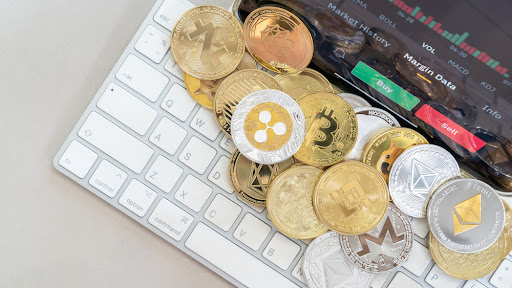
DeFi Platforms Expand Capabilities as User Demands Evolve
With cryptocurrencies continuing to grow in 2025, keeping your assets safe has never been more important. Unlike centralized options where your keys are held by a platform, a DeFi wallet allows you to truly own your digital assets. Which is why most investors usually opt for them.
How do you choose the best wallet given the abundance of them available and the growing number of DeFi wallet scams? In this guide we break down the best DeFi wallets of 2025 based on features security, user experience and community trust. We’ll also teach you how to avoid falling victim to scams that use phishing websites and fake wallets to target unwary users.
What to look for in a DeFi wallet
Not all DeFi wallets are created equal. To pick the best DeFi wallet, prioritize these must-haves:
- Non-custodial control: In non-custodial wallets, you hold the private keys rather than a third party tool.
- Multi-chain compatibility: This allows to easily manage assets across Ethereum, BNB Chain, Arbitrum, and others.
- User-friendly interface: It’s a crucial aspect, as beginner friendly UI on both desktop and mobile provides good user experience.
- Audited or open-source code: Transparency is a must for trust.
Remember a brand name isn’t enough. The perfect wallet complements your usage habits, security requirements and ecosystem. Keep in mind that DeFi wallet scams frequently use cloned apps or phony user interfaces to imitate popular wallets. Be sure to check official sources before downloading anything.
Top DeFi wallets of 2025
Here are five standout DeFi wallets you can rely on in 2025:
1. MetaMask
MetaMask is still a leading contender in 2025 and controls the Ethereum and EVM-compatible ecosystem. It provides a clean user experience, powerful browser and mobile support, and smooth dApp interaction.
Real-time transaction insights and improved phishing protection are two recent additions to MetaMask that help users stay informed before confirming actions.
Ideal for: Users who are beginner to expert in the Ethereum ecosystem
Drawbacks: Does not support non-EVM chains like Solana natively
2. Rabby Wallet
Rabby Wallet has been gaining traction in the recent past. It prioritizes security, and ensures that there are no more wrong chain errors by automatically determining which chain a dApp uses and switches networks for you. For added security, a preview is included with every transaction.
It is a favorite among developers and power users due to its multi-chain support and clear user interface, even though it currently performs better on desktops than mobile.
Best suited for: Transparency-focused multi-chain DeFi users
Drawbacks: Limited functionality of mobile apps
3. Trust Wallet
Trust Wallet is one of the most flexible mobile wallets on the market as it supports more than 70 blockchains and is a popular option for novices. It’s easy to use, integrates with numerous DeFi platforms and it is non-custodial. Your keys remain with you even though Binance owns it. Those who desire simplicity without compromising control will find it ideal.
Ideal for: Mobile-first users and beginners
Drawbacks: Occasional UX bugs and reliance on in-app browser
4. Coinbase Wallet
Coinbase Wallet is a fantastic entry point into DeFi. You can communicate with DeFi, dApps and NFTs using this wallet which is completely non-custodial in contrast to the centralized exchange.
However DeFi wallet scams, particularly those involving phony copies in app stores, regularly target it. Verify the publisher before installing at all times.
Ideal for: Coinbase users moving into DeFi
Drawbacks: Extra vigilance required due to impersonation risks
5. Argent Wallet
If you’re concerned about security and usability, Argent wallet meets your needs. Daily transfer limits, social recovery (no seed phrases!), and integrated DeFi access to protocols like Aave and Yearn are just a few of the smart contract wallet features it provides.
Although it is centered on Ethereum, it is perfect for mobile DeFi users who desire security without the hassle of conventional wallets.
Best for: Beginners and long-term Ethereum users
Drawbacks: Limited chain support beyond Ethereum and L2s
How to avoid DeFi wallet scams
Unfortunately, as DeFi adoption grows, so do DeFi wallet scams. Some of the most common threats include:
- Fake apps that mimic popular wallets like MetaMask or Trust Wallet
- Malicious browser extensions that steal private keys or modify transactions
- Phishing sites with URLs similar to official wallet platforms
To protect yourself:
- Only install apps from verified sources (official website or trusted app stores)
- Bookmark official wallet sites to avoid phishing attempts
- Review permissions and avoid signing blind transactions
Even the best DeFi wallet can’t protect you if you fall for a scam. So stay alert and trust your instincts. If something feels off, you should pause and verify.
Conclusion
Selecting the best DeFi wallet for 2025 is about safe asset ownership not just convenience. Great tools come with great responsibilities, particularly in light of the growing number of DeFi wallet scams.
The best wallets of today provide a variety of features for all types of users from MetaMasks hegemony to Argents inventiveness. Choose the wallet that best suits your ecosystem and objectives, consider your options and maintain a security-conscious mindset. Keeping control is what makes a wallet the best in DeFi.
FAQs
Should I put my crypto in a DeFi wallet?
Yes, if you want full control and ownership over your crypto assets without relying on centralized platforms.
Which DeFi wallet is the best?
It depends on your needs. MetaMask for Ethereum pros, Trust Wallet for mobile users, and Argent for a balance of security and simplicity.



 Bitcoin
Bitcoin  Ethereum
Ethereum  Tether
Tether  XRP
XRP  USDC
USDC  Wrapped SOL
Wrapped SOL  TRON
TRON  Lido Staked Ether
Lido Staked Ether  Cardano
Cardano  Avalanche
Avalanche  Toncoin
Toncoin